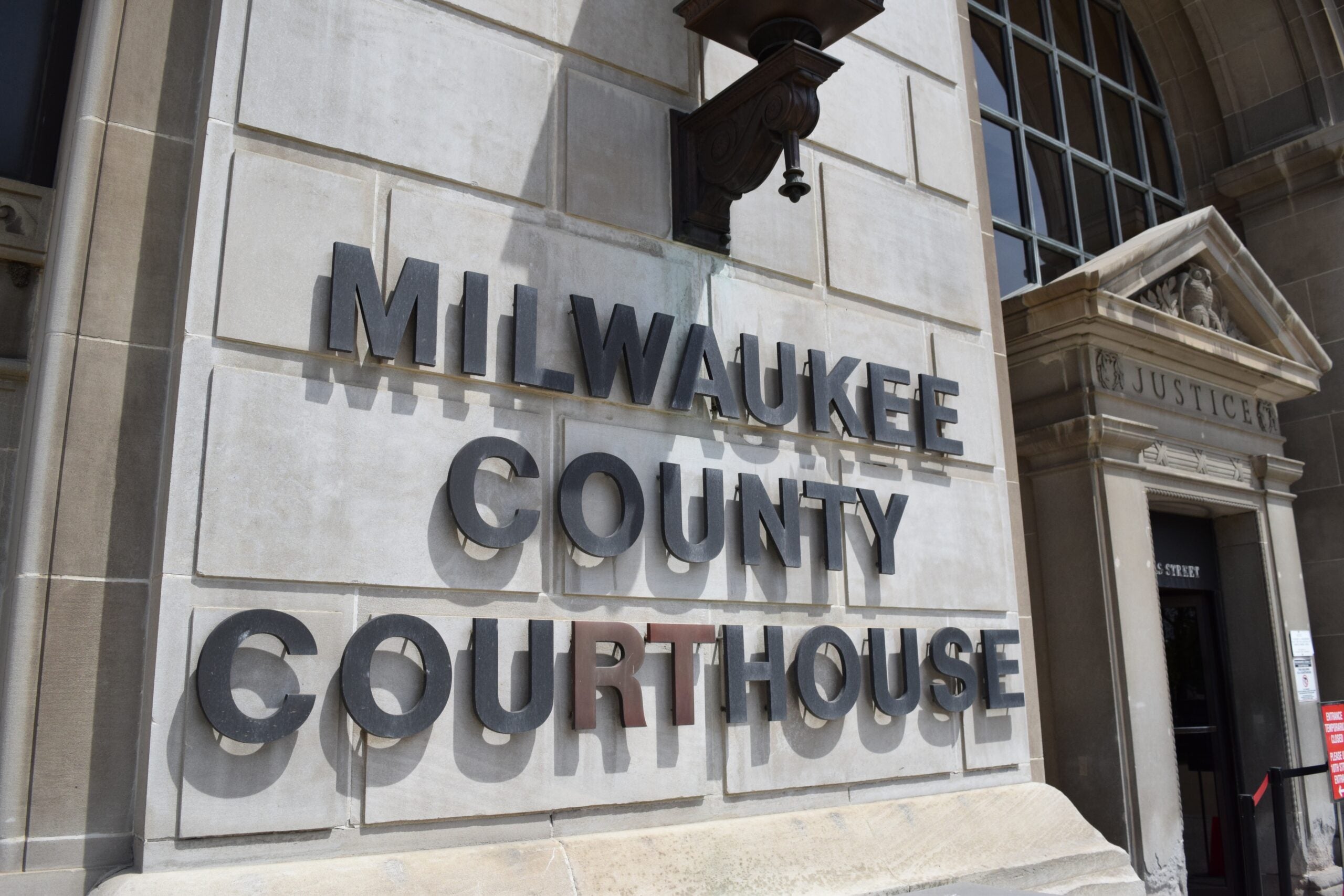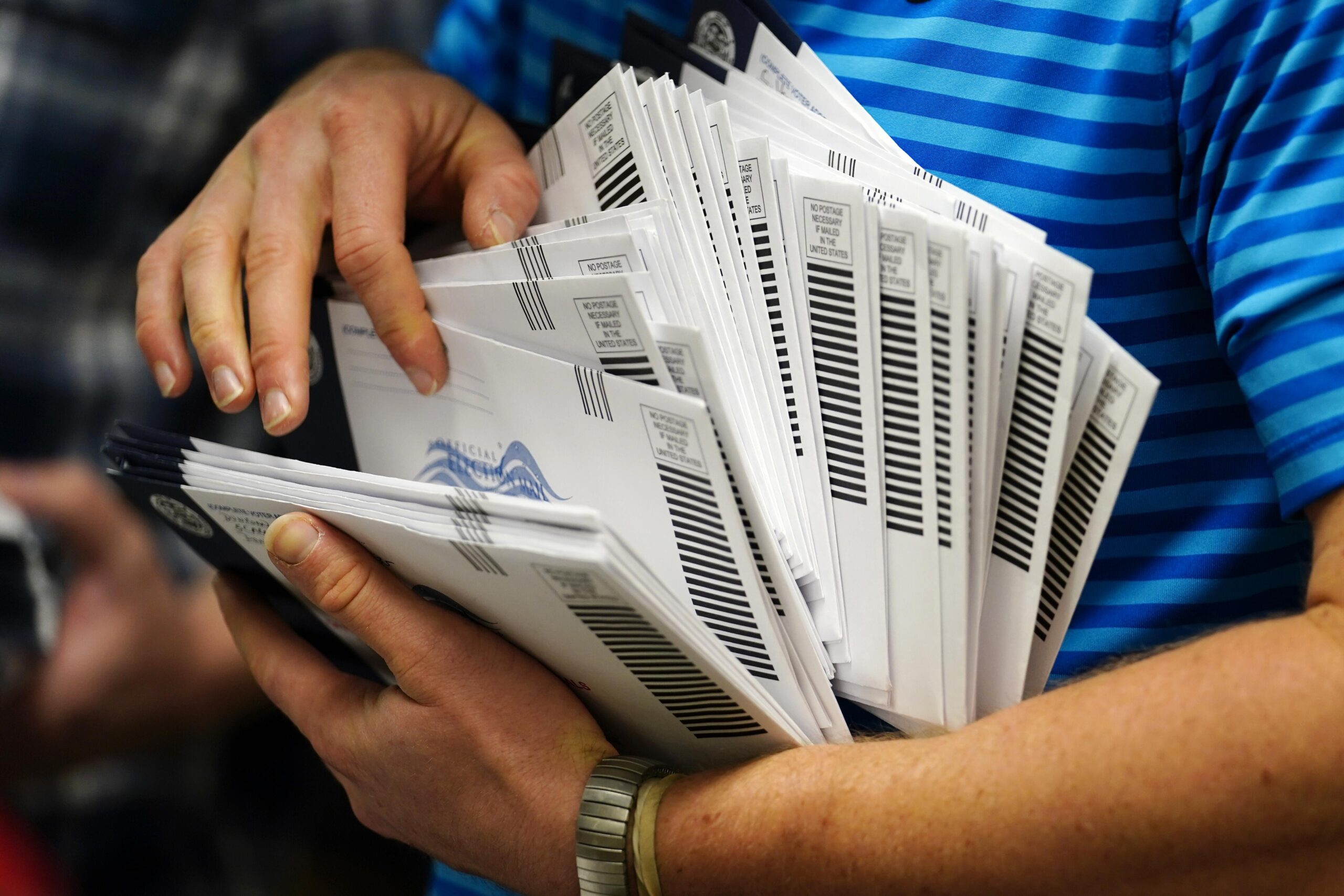A jury will decide this week whether a former Milwaukee elections official committed fraud, or whether — as her attorney argues — she acted as a whistleblower.
Kimberly Zapata, 47, was deputy director of the Milwaukee Election Commission when she admitted to her supervisor in 2022 that she had used false names to request absentee ballots reserved for military members, directing those ballots to the home of a Wisconsin legislator who was promoting false theories about election fraud in the 2020 presidential election.
Zapata was fired and charged with misconduct in public office, a felony, and three misdemeanor counts of election fraud.
News with a little more humanity
WPR’s “Wisconsin Today” newsletter keeps you connected to the state you love without feeling overwhelmed. No paywall. No agenda. No corporate filter.
In the first day of Zapata’s criminal trial Monday, her attorney said his client had acted as a “legitimate whistleblower.”
In his opening statement, defense attorney Daniel Morgan Adams said Zapata acted to “show a gap” in Wisconsin’s absentee ballot voting system.
“Wisconsin elections are fair, Wisconsin elections are secure, because of Kimberly Zapata and her former colleagues,” Adams said. “What she did however … was to show a gap in that fair and secure election system, a gap in security that no one was talking about, no one was taking seriously.”
Zapata oversaw absentee ballot voting in her former role. She told investigators she sent the ballots to Republican state Rep. Janel Brandtjen’s home to redirect the legislator’s focus “away from outrageous conspiracy theories and to something that is actually real.”
Brandtjen has promoted the idea that there was widespread election fraud in the 2020 election and has called for decertification of President Joe Biden’s win in Wisconsin.
The fake military ballots were mailed by clerks in Menomonee Falls, Shorewood, and South Milwaukee and were requested through the MyVote Wisconsin website on Zapata’s work laptop on the morning of Oct. 25, 2020. The Milwaukee resident used her municipal login credentials to access the MyVote Wisconsin database to find Brantdjen’s home address.
Adams said Zapata wasn’t performing the act as a political stunt.
“Her purpose was not to obtain anything … she was not committing any fraud, she had no fraudulent intent, she was a whistleblower,” Adams said.
But Assistant District Attorney Matthew Westphal painted a different picture during his opening statement.
“Elections are the cornerstone of our democracy,” Westphal said, adding that Zapata was a “protector of elections” in her former role.
“She responded to that trust by inserting fraud into the election,” Westphal said.
Zapata faces up to three-and-a-half years in prison a $10,000 fine if convicted of the felony charge, another six months for each of the election fraud charges.
Brandtjen could appear as a witness in the trial, according to a witness list.
The lawmaker is facing possible criminal charges in a separate case.
In February, the bipartisan Wisconsin Ethics Commission recommended felony prosecution against Brandtjen, Trump’s Save America committee and three county GOP arms, on allegations of campaign finance violations.
The commission alleges Brandtjen, Trump’s committee and county party leaders all conspired to illegally bypass campaign finance rules to funnel money to Adam Steen, a Republican candidate challenging Assembly Speaker Robin Vos in 2022.
What the criminal complaint says
Zapata had worked with the Milwaukee Election Commission for six years when she was fired in 2022. She served as the deputy director since June of that year. Part of her duties included supervising voter registration and absentee ballot voting.
The criminal complaint states the ballots that Rep. Brandtjen received at her home address were addressed to Holly Brandtjen, Holly Jones and Holly Adams.
When the ballots arrived at Brandtjen’s home the lawmaker contacted authorities and the media.
Village of Menomonee Falls clerk Amy Dishinger testified at the trial Monday. She confirmed that her office received an absentee ballot request for “Holly Adams.” Toya Harrell, the clerk for Shorewood, testified her office received an absentee ballot request for “Holly Jones.”
According to the complaint, Claire Woodall-Vogg, executive director of Milwaukee Election Commission, sent Zapata an article and statement from Brandtjen on Oct. 31 which discussed the ballots she received in the mail.
In that statement, Brandtjen said she believed “someone was trying to point out how easy it is to get military ballots in Wisconsin.”
Zapata told Woodall-Vogg “she has a point,” the complaint said.
On Nov. 1, Zapata admitted to Woodall-Vogg that she was the one who sent the ballots to Brandtjen.
“Zapata did this because she wanted to make a point that there is fraud in existence. She stated that it is not the conspiracy theories out there, but she wanted to bring the actual true fraud out,” the complaint states.
She told investigators that she “felt overwhelmed due to the threats of violence the Election Commission was receiving, in addition to the constant daily harassment and accusations of lying and hiding things.”
Following news of the incident, the Wisconsin Elections Commission said there are “multiple checks” in place to ensure fraudulent military absentee ballots are not counted.
Military members, who are not required to register to vote, are exempt from providing any photo identification information. The WEC added in a statement that absentee ballots for military members “are not subject to the same laws as other absentee ballots.”
Wisconsin Public Radio, © Copyright 2025, Board of Regents of the University of Wisconsin System and Wisconsin Educational Communications Board.







